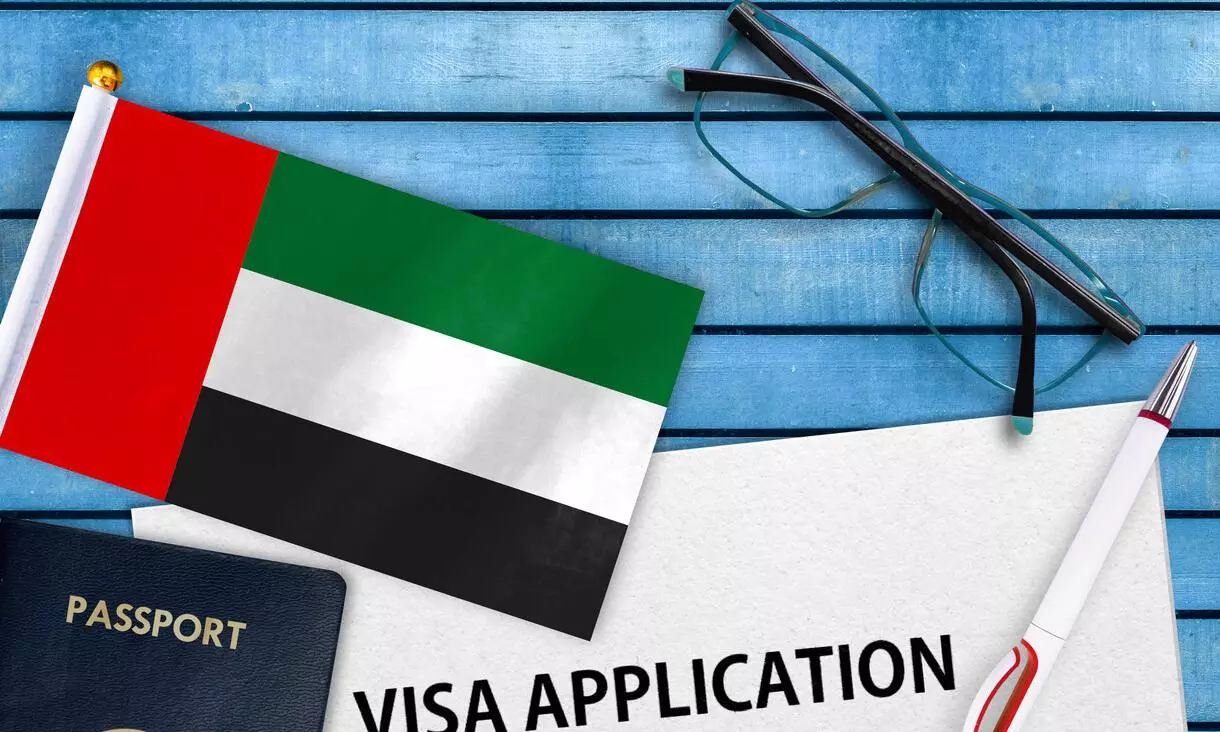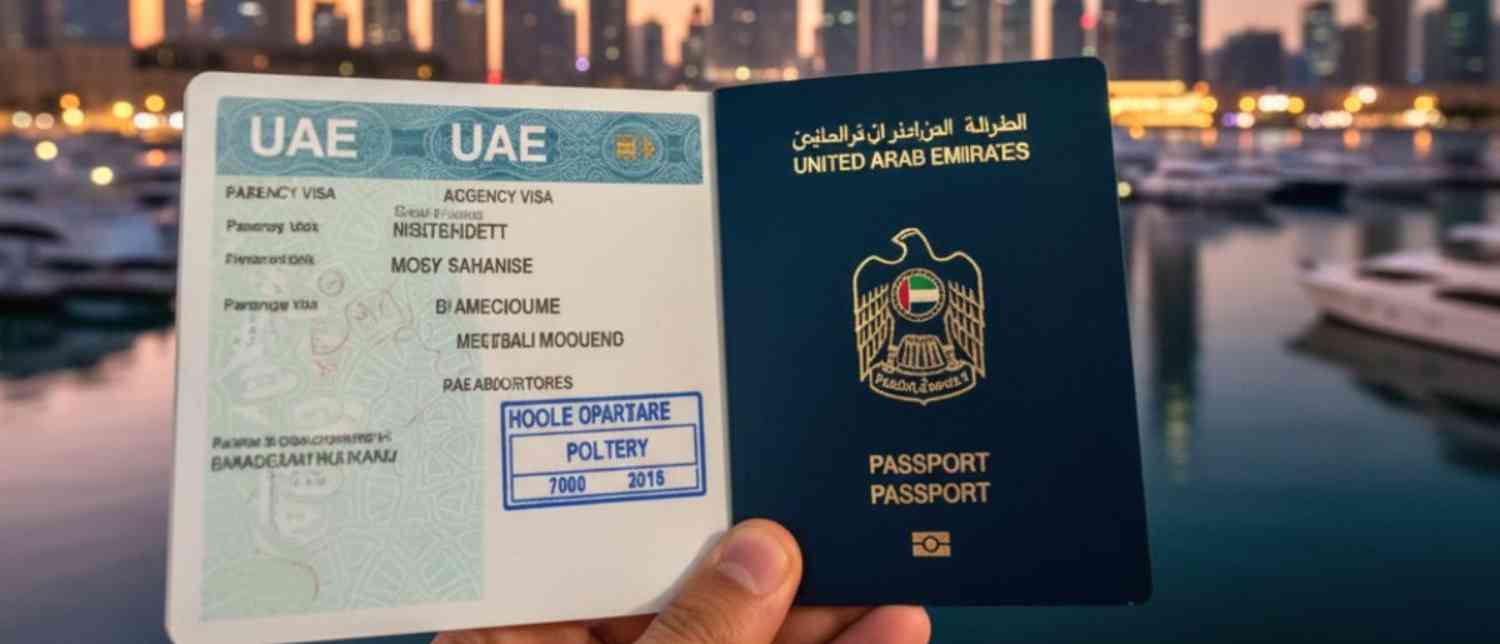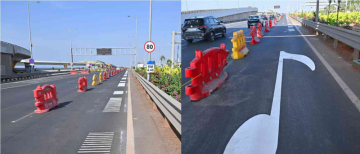In a significant immigration policy update, the United Arab Emirates (UAE) has reportedly suspended the issuance of tourist and work visas for citizens of nine countries across Africa and Asia. While no official government statement has been released, an internal UAE immigration circular, accessed by multiple media outlets, suggests this policy change could have wide-reaching economic, diplomatic, and humanitarian implications. This 2026 UAE visa ban reflects evolving concerns related to national security, public health, and migration governance.
According to a report by the Times of India, the UAE has temporarily stopped issuing both tourist and work visas for citizens of nine specific nations, effective immediately. The suspension, detailed in the internal circular, does not affect individuals who already hold valid UAE visas—they can continue to live, work, and travel legally within the country.

Countries Affected by the 2026 UAE Visa Ban
The UAE’s temporary suspension currently impacts new visa applications from the following countries:
-
Afghanistan
-
Libya
-
Yemen
-
Somalia
-
Lebanon
-
Bangladesh
-
Cameroon
-
Sudan
-
Uganda
Citizens of these nations are barred from applying for tourist visas or work permits as of 2026. There is no announced timeline for when this suspension might be reviewed or lifted, leaving prospective travelers and job seekers in a state of uncertainty.
It’s crucial to note that this is a visa suspension, not a complete travel ban. Nationals holding valid visas remain unaffected and may continue residing or working in the UAE without disruption.
Understanding the Reasons Behind the Visa Ban
While the UAE has not publicly confirmed the rationale for this move, analysts and sources have suggested multiple contributing factors:
1. Security Concerns
Unofficial reports cite national security as the primary driver behind the visa freeze. Similar measures have been implemented in the past in response to issues such as:
-
Document fraud
-
Terror-related threats
-
Unlawful migration
-
Identity theft and forged paperwork
Insiders describe the suspension as a preventive measure aimed at reducing potential risks from fraudulent or unverified entries.
2. Diplomatic and Geopolitical Tensions
Complex or strained bilateral relations between the UAE and certain countries may also influence visa policy. Historical precedents show that immigration restrictions can reflect or reinforce broader diplomatic positions.
3. Public Health and Pandemic Protocols
Although the world is in a post-pandemic phase, residual COVID-19 protocols still appear to influence UAE visa decisions. Analysts highlight ongoing concerns such as:
-
Incomplete health screening procedures
-
Underequipped healthcare systems in some countries
-
Potential spread of virus variants from regions with less monitored health systems
These factors suggest that public health considerations continue to shape immigration policy.
4. Migration Management and Digital Reform
The visa suspension aligns with broader UAE efforts to:
-
Streamline immigration documentation
-
Improve identity verification
-
Digitize the visa application process
Officials aim to reduce paperwork inconsistencies and curb identity fraud, making migration management more efficient and secure.
Economic, Social, and Operational Impacts of the Visa Ban
The UAE visa suspension is expected to create ripple effects across multiple sectors:
A. Expatriate Workforce Disruption
The ban directly affects job seekers from the nine listed countries, particularly in sectors such as:
-
Construction
-
Domestic work
-
Retail
Companies that rely on skilled or semi-skilled labor from these countries now face recruitment delays. Even existing residents attempting to extend or modify work permits have reported difficulties.
B. Remittance and Economic Fallout
Workers from Bangladesh, Sudan, Cameroon, and other affected nations contribute critical remittances to their home countries. The visa suspension disrupts these income streams, potentially affecting the economies of already vulnerable regions.
C. Tourism Sector Slowdown
Tour operators, airlines, and hospitality providers serving African and South Asian tourists are experiencing disruptions. Prospective visitors now face uncertain travel timelines, forcing businesses to adjust itineraries and marketing strategies.
Clarifications from UAE and Foreign Envoys
UAE Envoy to Uganda
Contrary to circulating reports, Abdalla Hassan AlShamsi, UAE’s Ambassador to Uganda, confirmed that there is no visa ban on Ugandan nationals. Speaking to the media via OpenGovUg, he stated:
"What is circulating out there is false."
Bangladeshi Ambassador to the UAE
Similarly, Tareq Ahmed, Bangladesh’s Ambassador to the UAE, dismissed claims of a visa ban on Bangladeshi citizens. He described these reports as “malicious” in a statement to the Dhaka Tribune. Ahmed clarified that no official communication regarding restrictions had been received and emphasized that the travel website uaevisaonline.com, which listed Bangladesh among banned countries, is not an official government authority.
Key Implications of the Suspension
The 2026 UAE visa ban carries significant implications:
-
Staffing agencies, recruitment firms, and diplomatic offices are awaiting official clarifications.
-
There is no announced end date for the suspension.
-
Both prospective workers and tourists are affected, potentially redirecting applications to alternative destinations.
Workforce Disruption
Jobseekers from the nine nations, particularly in construction, domestic work, and retail, face significant barriers. Companies reliant on skilled or semi-skilled labor are encountering delays in hiring, impacting operational continuity.
Economic and Remittance Consequences
Workers from Bangladesh, Sudan, and Cameroon contribute substantial remittances to their home countries. The visa freeze disrupts these income flows, with a ripple effect on local economies in already vulnerable regions.
Tourism Slowdown
Tour operators, airlines, and hospitality services targeting African and South Asian tourists are facing cancelled or postponed itineraries. Prospective visitors must adjust travel plans amid ongoing uncertainty.
What Happens When the Visa Ban Is Lifted?
Although indefinite, the UAE visa suspension is not permanent. Once lifted, nationals from the nine countries will be able to resume visa applications via:
-
UAE online visa portals
-
Embassies and consulates
-
Authorized immigration offices
Applicants will need to meet standard visa requirements, including:
-
A valid passport with at least 6 months validity and two blank pages
-
A negative COVID-19 test result (RT-PCR)
-
A vaccination certificate
-
Proof of compliance with UAE health and quarantine regulations
Authorities and businesses across affected countries are closely monitoring updates and awaiting official guidance from UAE immigration authorities.
What the 2026 UAE Visa Ban Means
The 2026 UAE visa suspension impacts nine countries spanning Africa and Asia: Uganda, Sudan, Somalia, Cameroon, Libya, Afghanistan, Yemen, Lebanon, and Bangladesh. While intended to address security, health, and administrative concerns, the ban has triggered economic, social, and operational repercussions.
For now, nationals holding existing visas can continue to travel, work, and reside in the UAE legally. However, prospective tourists and workers must remain patient as the UAE works to address its migration, security, and public health priorities. Official clarifications and policy updates are awaited, but until then, uncertainty will continue to shape the movement of people between these nations and the UAE.
With inputs from agencies
Image Source: Multiple agencies
© Copyright 2025. All Rights Reserved. Powered by Vygr Media.

























